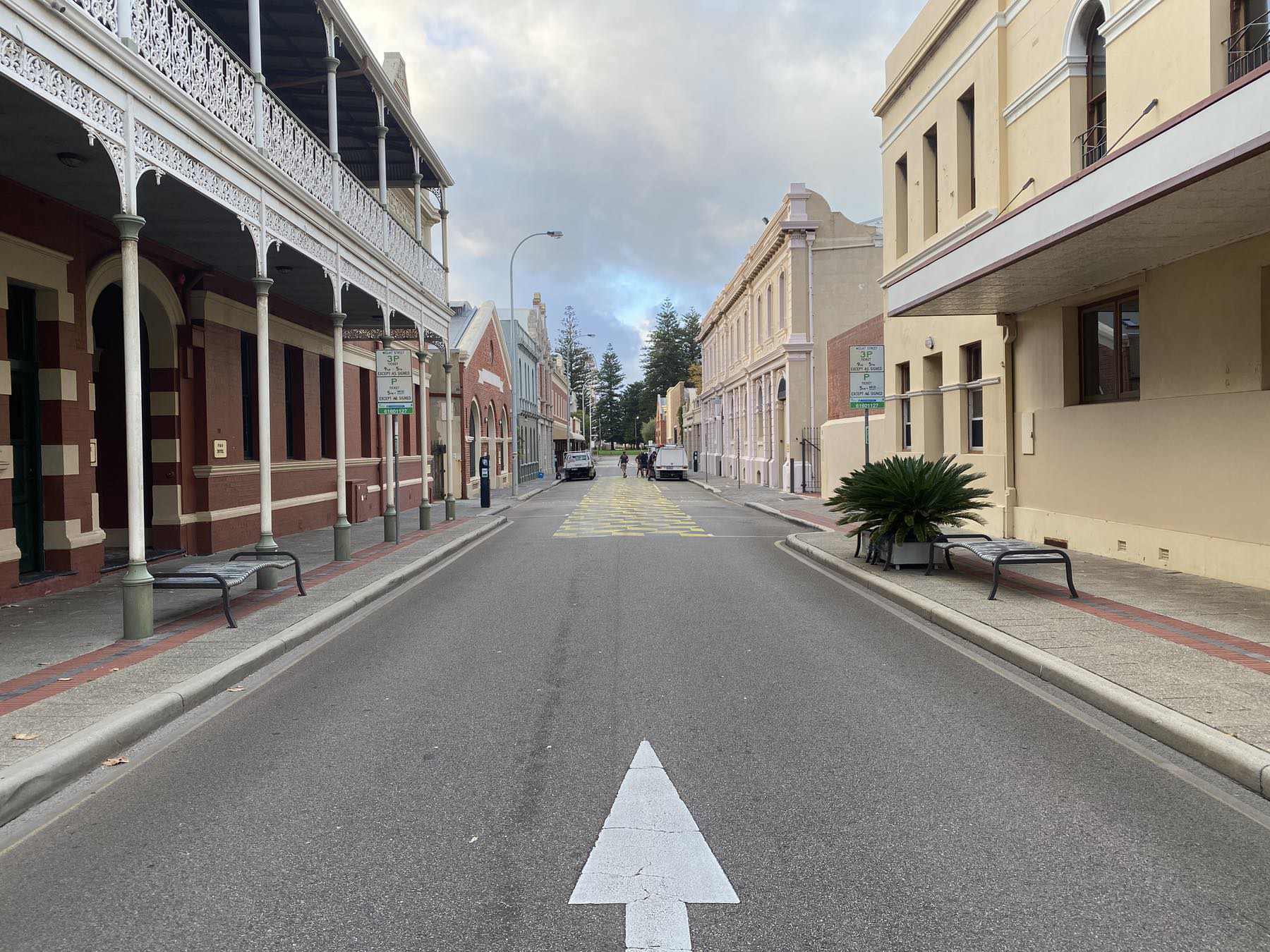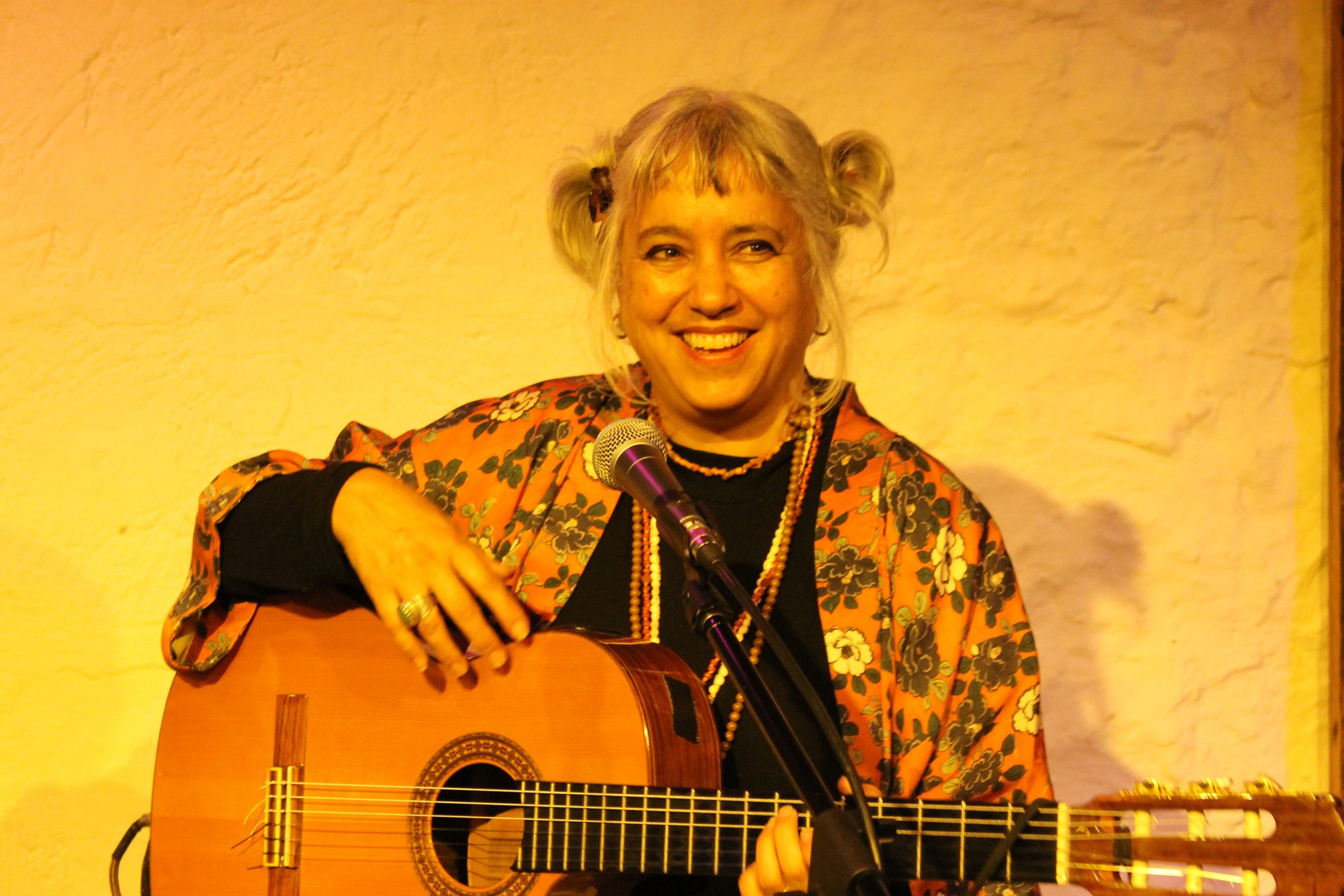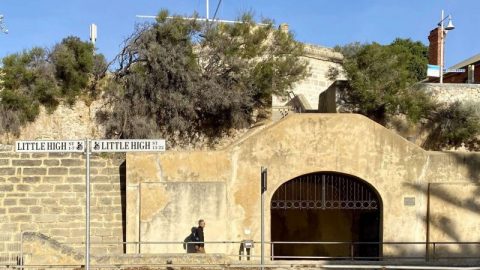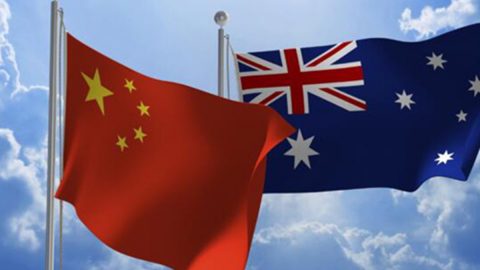A flurry of local and global activity stirred me from summer slumber. Soon to head to the polls, Fremantle electors will be spoiled for choice and many will be scratching their heads as they attempt to sort the brown rice from the buckwheat. No such concerns in the Xi and Trump camps of the two international powerhouses – China and the USA. The former plays with a straight bat while the latter throws a bag of marbles into the air and the world watches to see how they fall.
In sport-obsessed Oz, it’s akin to our cricketers knocking up a mammoth score on a Sri Lankan dustbowl after being flummoxed and fooled on home soil by the swerve and swing of Indian maestro, Jasprit Bumrah.
Invigorated by cricket and political consternation, I plunged into a Facebook conversation around the merits of democracy, autocracy and whatever mix of governance takes one’s fancy. While the results may not have been as stimulating as the Editor’s weekly discourses with the Politics Professor, they triggered musings among friends and, I hope, will find a happy home in this forum.

The main correspondent – let’s call him VT for ‘Very Thoughtful’ – posted a link to an article on DeepSeek AI technology and Chinese ingenuity in matching the West. Someone countered that, while having respect for Chinese creativity, adaptability and technical skills, they had no respect for the Chinese State. Although fashionable to blame a one-party State as authoritarian, said VT returning serve, it had distinct advantages over multi-party States, namely, the former could do long-term planning and strategy and didn’t suffer the waste of time, money and energy of pitting one party against another.
From his many years visiting and residing in China, VT concluded people are more satisfied with their government than voters in Western democracies. While acknowledging repression and tight control, he added that the Chinese were not so bothered, given their government’s ability to create wealth and advance living standards.

It’s not just ‘fashionable’ to recoil from one-party State authoritarianism, said I, delivering a backhand down the line. From my comfortable vantage point, it comes down to what we value most – and if it’s tied up in ‘wealth’ and ‘advanced living standards’ and by implication the dominant paradigm of unending economic ‘growth’ – then I’m not aboard that particular golfcart. Democracy, for all its faults and frustrations, affords a better chance to openly discuss what you think, read, and aspire to, plus other facets of personal liberty that are not evident under totalitarian rule. The USA, for all its messy, polarised politics, and despite the dictatorial tendencies of its current commander-in-chief, still has plenty to offer.
Moreover, ‘liberty, equality, and fraternity’ on Parisian boulevards, and that imposing statue welcoming newcomers to New York may be somewhat tarnished – but it’s no surprise millions of people fled oppression to start afresh in Europe or the US (and Australia, Canada and New Zealand to boot). For many, the economic imperative has been to the fore but, coupled with that, is usually an understanding they would enjoy freedoms not apparent in their country of origin.
This didn’t convince VT, who thought such a viewpoint limited and distorted, influenced by Western propaganda. He pointed out there are two kinds of freedoms: freedoms to and freedoms from. Both are important but while the West concentrates on the former, the East concentrates on the latter. He went on to say (and I agree with him here) this raises deep questions of individual versus group rights. The West tends to want to maximize individual opportunity which, while important, is counter-productive when society becomes the law-of-the-jungle. Furthermore, in the USA, the wealth of the top 1% exceeds the wealth of the entire middle class. A recipe for upheaval – major social disruption of which Trump is an effect not a cause.
Drawing from Peter Turchin’s 2023 book, End Times: Elites, Counter-elites and the Path of Political Disintegration, VT holds that the USA is not a democracy but a plutocracy. Governance is in the hands of the wealthy who use it to increase their wealth. In Turchin’s own words:
What is little appreciated is that although democratic institutions are the best (or least bad) way of governing societies, democracies are particularly vulnerable to being subverted by plutocrats. Ideology may be the softest, gentlest form of power, but it is the key one in democratic societies. The plutocrats can use their wealth to buy mass media, to fund think tanks, and to handsomely reward those social influencers who promote their messages. In other words, they wield enormous power to sway the electorate toward the opinions that promote their interests. Cruder forms of power, such as swaying elections and lobbying politicians, are also quite effective in promoting the political agendas of the rich. Finally, just as in war, money is the most important fuel powering organizations. Naked enthusiasm is not enough for a sustained, long-term effort, although money plus enthusiasm is better than just money. The plutocrats can afford (literally) to plan, and implement their plans, for the long term.
On the other hand, countries of the East focus more upon a stable society, even if this comes at the expense of personal freedoms. Stability, however, does not guarantee silence. Drawing from his experience, VT believes Chinese people on the whole are much less docile than Americans. And the government knows it needs to satisfy the masses. This results in a populace more trusting of government than in Western countries.
Yet VT is quick to acknowledge China is in transition. For millions of people in the countryside ‘the world begins and ends at the border of their village’. Eventually ‘a real civil society’ will have to emerge and the present scenario is ‘unsustainable’.
I share that hope. I also share VT’s view that we – human societies in general – are on a ‘disintegrative nosedive’. Looking back in history, with the rise and fall of empires and civilisations, disintegration and renewal are the order of the era. Transitions are propelled by war, famine, pandemics and other major disruptors. The Chinese government, in VT’s eyes, is acutely aware of these historical cycles, and is hellbent on minimising collateral damage.
That makes sense to me. And I find myself on the same page when we look at the current state of the Western alternative. An economy predicated upon unending growth and underpinned by unchecked exploitation of the Earth’s resources seems destined to fall off the proverbial cliff. Despite all that falls under the rubric of ‘progress’, there is growing dissatisfaction, even in affluent countries, as standards of living plateau or deteriorate, and governments are in the grip of elites who look after themselves, thereby ensuring the gap between the haves and the have-nots grows wider and wider. Understandably, people are lost in fear and anxiety and become prey to strong, populist leaders. Liberal, progressive political parties flounder, often gripped by inertia and unable to articulate a vision that might inspire their constituents.

In my conversations with VT, I came back to this idea of freedom and how it crystallises as ‘freedom to’ and ‘freedom from’. The legacy of postwar prosperity, primarily in the West and leading through to the 60s and 70s, was a swollen tide of individualism. Paradoxically, despite the flotsam and jetsam of peace and love, traditional concerns for the collective were submerged or washed away. We baby boomers rode that wave, more-or-less secure from war and Depression, usually in stable (if conservative) families, soaking up educational and job opportunities, free to climb the capitalist ladder, or embark on public service careers, or – as some of us did – break away from parental and societal straitjackets and seek salvation in Haight-Ashbury and/or India. We can now see these legacies have not been entirely benign!
Meanwhile, Russian versions of Communism and derivatives in Yugoslavia all ended up in tears. We shouldn’t have been surprised, those of us who read Solzhenitsyn, Arthur Koestler, Aldous Huxley and George Orwell. One could say inhabitants of those countries wanted both ‘freedom from’ impoverished and oppressive lifestyles and ‘freedom to’ live in what were perceived as more open societies with greater economic, educational, and other opportunities.
The Chinese socialist/capitalist model is another kettle of fish. We are yet to see how that dance will play out. And I certainly don’t decry the massive improvement in living standards that has come to millions of citizens, and I can see that holding the reins fairly tight (and thus keeping political control within the CCP) has been crucial to that success. For sure, China does not want to go down Russia’s road and disintegrate into what probably would be a modern version of feudalism. The path ahead is intriguing and challenging, not only for China but for the world at large.
In response, VT reminded me Western wealth primarily arose from colonisation and exploitation, expropriating the land of indigenous peoples, introducing disease and obliterating ancient cultures. Those of us who began school in the 1950s were not taught these things. Instead, we imbibed a worldview our civilisation was ‘superior’, not only in terms of our political and economic systems but in terms of our ‘freedoms’. However, these freedoms were bed-rocked by affluence, and the machinery of government was lubricated by paying a living wage to workers and providing access to goods and services. In short, material prosperity – not to be sneezed at, but impregnated with unexamined costs.
With regard to free speech and freedom of assembly, VT articulated that this is limited. Western liberal democracies ‘tout their merits partly as a feelgood measure so we don’t have to look at all the injustice and misery we have in our societies’. I think this is too much of a broadbrush. Sure, some people may plug for these freedoms in a kind of smug, self-satisfied manner and avert their eyes from major issues within their own societies. But I think for most of us it’s a question of ‘both/and’. I’m not alone in finding that I can criticise injustice, inequities and the multiplicity of issues within my own society while at the same time cherishing the real freedoms I enjoy. And I don’t think those freedoms are as thin as suggested. At least not yet.
I did find myself pulling back when VT went on to say the Communist model was not inherently bad but was undermined by Western democracies who saw it as a credible threat to capitalism. Furthermore ‘if the Russians had had access to the same economic benefits as did the Americans and the West, they would not have had to impose the draconian measures on the populace that they did. This is not to say that there was not corruption, there was. But there was also corruption in the capitalist countries, it was just that they were richer and could afford it.’

Misleading and partial, I thought – while agreeing that, following the Russian Revolution, there was powerful pushback from European nations and from the USA. To a significant extent this may have been motivated by economic self-interest but there were also profound philosophical and ideological differences. The Bolsheviks came in with a plan for agrarian reform in particular, wealth redistribution, centralised control and planning, and strict adherence to their version of Marxism. From the start, internal power struggles erupted – think Trotsky and his Mexican exile and execution – and from that point Lenin held the reins of power before Stalin succeeded him. To achieve their aims, heavy-duty oppression – not just ‘corruption’ – was rife. Dissent was not tolerated. Offenders, actual and otherwise, were bumped off or shipped to the Gulags. Not to mention the ‘Holodomor’ – the Ukrainian famine of the early 1930s, brought about by Soviet policies of collectivisation, rapid industrialisation, and targeted punishment – ideologically-driven measures that wiped out up to five million Ukrainians. It took that climate of fear and violence to keep the population in line, and it festered in Soviet satellites such as Hungary, Rumania, Bulgaria, Czechoslovakia, the Baltic States, and Poland. So, in my estimation, it was not simply economic exclusion through Western anti-Soviet initiatives that subverted the Communist dream. After seven decades, it reached a tipping point and Gorbachev, when he began his overtures to the West, must’ve recognised this.
That aside, we also exchanged views around the effectiveness or otherwise of the democratic model. VT drew my attention to the so-called ‘iron law of oligarchy’ which states that ‘all forms of organization, regardless of how democratic they may be at the start, will eventually and inevitably develop oligarchic tendencies, thus making true democracy practically and theoretically impossible, especially in large groups and complex organizations.’
His conclusion: ‘In reality, the question is who will exploit the masses. In communism, it will be those who hold power as government officials, and in liberal democracy, it will be those who hold the reins of production directly.’
I concur with this broad analysis. If you look back in history, the ‘iron law of oligarchy’ seems to rule the roost. Maybe the Greek version of democracy worked for a while, as long as you didn’t count women and slaves. Yet more recent iterations tend to flourish and falter. (Maybe Switzerland, with its citizens’ initiatives is something of an outlier.) Applying Zhou Enlai’s timescale, it is too early to tell whether there will come a time when practice aligns with theory. Philosophers, spiritual leaders and other thinkers have long pondered how to create a just society. Their ideas may appear universal but are also constrained by time, place and context. Socrates couldn’t anticipate three major monolithic religions; Confucius might have been puzzled by the Great Leap Forward; Marx didn’t have access to ‘artificial intelligence’.

Yet I think it’s fair to say that, despite the faltering (whether through the iron law of oligarchy or something else), some flavour of democratic flourishing seems to have permeated the human psyche. Close to home, while the denizens of Singapore might’ve been content to flourish economically and securely under Lee Kuan Yew (and execute drug mules and fine litter bugs) they might, at least in their student days, have been relieved to shed the authoritarian mantle when studying at an Australian university. Same applies today to the influx of Chinese seeking a long-term future in countries like Australia. For those who remain in their Motherland– yes, people want security and sustenance, a roof over their heads and a job and to be able to educate their kids and live in peace. And they are willing to put up with a lot to achieve these aims. They may be prepared to shut up, not speak their minds publicly, turn a blind eye to contradictions. And, if and when they look abroad, they may see that so-called democratic freedoms come with a price – and that price is often chaos. So it’s too high. No fancy United Nations Declaration of Human Rights is going to have relevance if one looks through that lens. But I also think VT’s speculation is on the money that ‘there will come a time (if we survive) in which the torch will be passed and China will be in the position that the US is in now where they can no longer hide or paper over their dysfunction……’ That, I imagine, will be an almighty reckoning, although it may be more gradual than cataclysmic.
Better still, can we imagine a different kind of future? When democratic fundamentals like ‘one man/woman/etc – one vote’ coalesce into some form of consensual decision-making (perhaps akin to sociocratic and other approaches within some of the intentional communities I’m currently researching and writing about). When ‘we are all in this together’ becomes a felt reality rather than a quaint, fuzzy notion. When collaboration replaces – or at least augments – competition as a basic human value – a value we’ve inculcated as part of our raison d’etre. When we accord the integrity of the blue planet and the biosphere above ‘our’ particular patch of dirt or flag-waving country. Critically, when we understand on a deep level our interconnectedness with Nature and all that lies within, including the human component.

Dreaming? Of course. But I am inspired by people like Joanna Macy who, even in her 90s, can clap her hands and enthuse about how delightful it is to be alive, even in these perilous times. Her concept of ‘active hope’ is something of a clarion call – the antithesis of despair.
Yes, I do have a preference for democracy over autocracy. But I’m not talking about what passes for ‘democracy’ in most countries. I’m actually idealistic enough to envisage a time when there will be an ethos of collaboration rather than competition – within local groups and communities, and nation states, despite political, religious and other ideological differences.
Meanwhile, I reckon it’s an ongoing opportunity for us oldies to share our experiences and ideas. To remain curious, without rose-coloured glasses. And to trust our contributions, no matter how small, will be of service.
By Bruce Menzies. Based in Fremantle, most of the time, Bruce Menzies is the author of three novels, a family history, and a recent memoir. Details at BruceJamesMenzies.com If you’d like to read more of Bruce Menzies’ work on Fremantle Shipping News or listen to a fascinating podcast interview with Bruce, look here
~~~~~~~~~~~~~~~~~~~~~~~~~~~~~~~~~~~~~~~~
~ If you’d like to COMMENT on this or any of our stories, don’t hesitate to email our Editor.
~ WHILE YOU’RE HERE –
PLEASE HELP US TO GROW FREMANTLE SHIPPING NEWS
FSN is a reader-supported, volunteer-assisted online magazine all about Fremantle. Thanks for helping to keep FSN keeping on!
~ Don’t forget to SUBSCRIBE to receive your free copy of The Weekly Edition of the Shipping News each Friday!







